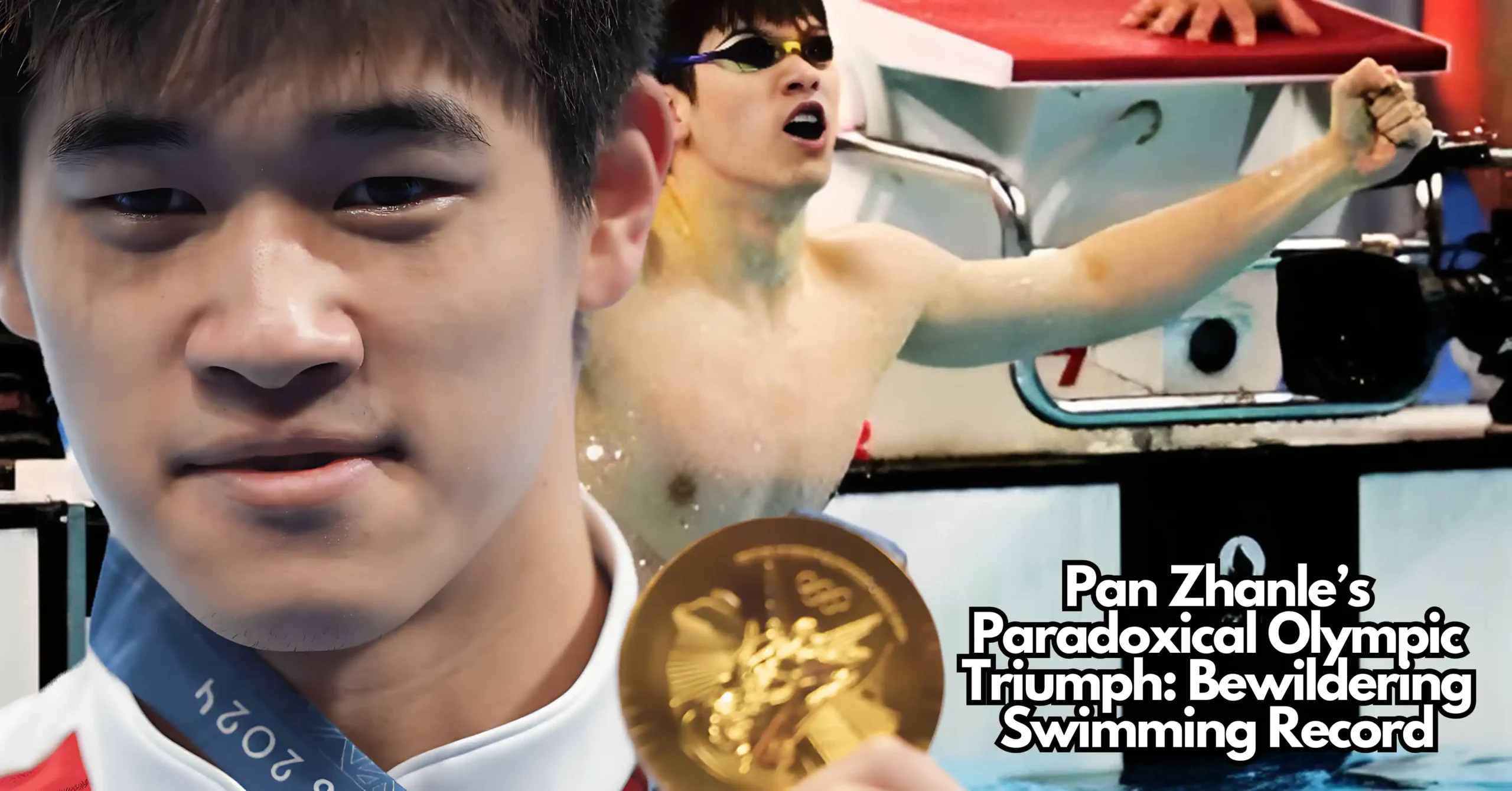
Pan Zhanle’s Bewildering New Olympic Swimming Record: A Paradoxical Triumph
In an astounding feat on Wednesday, Pan Zhanle shattered the men’s 100-meter freestyle world record at the mere age of 19. His performance didn’t just break a barrier; it obliterated it by a staggering 0.4 seconds, outpacing the second-place finisher by a full body length of 1.08 seconds. This astonishing achievement has since sparked a tumultuous controversy. Accusations of doping clash with allegations of racism, while the unfathomable nature of Pan’s victory leaves the entire scenario perplexing.
Australia’s Kyle Chalmers and Romania’s David Popovici secured second and third places, respectively. Upon realizing the record had been broken, Chalmers allegedly glanced at Popovici and uttered a single word: “doping.”
Pan, on his part, recounted his less-than-welcoming interactions since arriving in Paris. He claimed that Chalmers had ignored his greeting at the opening ceremony and that Jack Alexy from the USA had splashed water on his coach.
“We have redeemed our past indignities. On day one, I tried to greet Kyle Chalmers, but he disregarded me. Jack Alexy of the USA splashed water on our coach. I felt belittled. Can I voice this on TV? Today, I finally triumphed over them all!”
The shadow of doping looms over Chinese swimming, with a notorious history from 1990 to 1998, where 28 swimmers tested positive for performance-enhancing drugs. A New York Times article from April 2024 reported that 23 Chinese swimmers tested positive for trimetazidine, a banned heart medication, at the 2021 Chinese Swimming Championships. Despite this, 13 of those athletes competed in the Tokyo Olympics, raising serious questions about the World Anti-Doping Agency’s (WADA) impartiality regarding China.
In June 2024, Michael Phelps addressed Congress, expressing concerns about systemic issues within WADA and the Chinese swimming team’s integrity. He stated, “Reform attempts at WADA have fallen short, revealing deeply entrenched problems that undermine international sports’ integrity.”
Pan Zhanle has not been implicated in any doping reports. Currently, there is no evidence suggesting he used performance-enhancing drugs. However, his record-breaking swim has prompted widespread scrutiny and questions.
One certainty remains: We witnessed an extraordinary accomplishment in swimming history. The lingering enigma is: How?
Understanding the significance of Pan’s achievement requires an appreciation of the men’s 100m freestyle event. This race, the epitome of speed swimming, demands an impeccable blend of velocity, endurance, and technique. Swimmers must execute a flawless turn and maintain optimal stroke count on the return lap to touch the wall first.
The 100m freestyle gained immense popularity in 1922 when Johnny Weissmuller of the USA swam it in under one minute, clocking in at 58.6 seconds. This achievement cemented the 100m freestyle as the premier event for record progression, with global attention fixated on it.
Over the decades, records continued to fall, albeit by narrower margins. It wasn’t until 1976 that Jim Montgomery broke the 50-second barrier, setting a record of 49.99 seconds.
The 1980s saw marginal improvements, with the record dropping by only 1.57 seconds over a decade. Swimmers were nearing the limits of human capability, with each new record often set by mere tenths of a second. The 2000 Olympics in Sydney witnessed the men’s 100m freestyle record drop below 48 seconds, courtesy of Pieter van den Hoogenband of the Netherlands, amid controversy over the use of full-body drag-reduction suits, which were subsequently banned.
From 2000 to 2024, the record inched forward, broken eight times but improving by only 0.98 seconds over 24 years. This gradual progression underscores the magnitude of Pan Zhanle’s record-breaking swim.
A prodigious swimmer since the age of 15, Pan transitioned from a 1500m specialist to a 100m contender, making his international debut at the 2021 FINA World Championships, where he finished 11th in the semifinals. His meteoric rise began at the 2022 Asian Games, held in August 2023, where he posted an impressive time of 46.97 seconds in the 100m freestyle.
Pan’s ascension reached new heights at the 2024 World Championships in Doha, where he broke the world record with a time of 46.80 seconds. This achievement, though remarkable, did not spark controversy as it aligned with the typical progression of world records.
However, Pan’s performance in Paris defies logic. Breaking his own world record by 0.4 seconds in a pool widely considered slow is bewildering.
The Paris pool’s depth, 2.15 meters, exceeds the 2.0 meter Olympic requirement but falls short of the 3.0 meters recommended by World Aquatics for optimal speed. A deeper pool minimizes water rebound off the bottom, reducing surface chop and creating faster conditions.
Swimmers in Paris have noted the slower times due to surface chop, with only longer races setting new records. The 100m freestyle events were expected to suffer the most, with the shallow pool affecting the return lap.
Kyle Chalmers and David Popovici, who finished second and third, were notably slower than their personal bests, highlighting the pool’s impact. Yet, Pan Zhanle’s performance stands as an anomaly, breaking the world record by a significant margin in adverse conditions.
To clarify: This does not imply Pan cheated or used performance-enhancing drugs. He passed all pre-Olympics drug tests, and post-race test results are pending. Nevertheless, the nature of his swim is unusual. The extraordinary gap between Pan’s record and other performances at the Olympics raises questions for which we currently have no answers.





